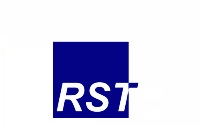Teaching
News from 26.03.2024
Information on the courses and their implementation can be found in the respective Moodle courses
Summer semester 2025
| Digital Control + Control Lab |
The module "Control " consists of 3 module elements: |
The focus of the lecture is the treatment of digital control systems. Prerequisites and design methods for digital controllers are examined. Methods covered include the z-transform, quasi-continuous controller design, digital control loop description, classical digital controllers and dead beat controllers. |
Lecturer: Dr.-Ing. Peter Will, Dipl.-Ing. Peter Sahm |
|
Introduction to Control Engineering for Computer Scientists
|
In the module "Introduction to Control Engineering for Computer Scientists", the relationships between signals in the time domain and in the frequency domain are explained in order to use them for the treatment of linear time-invariant systems in control engineering. |
Lecturer: Prof. Dr.-Ing. habil. Michael Gerke |
|
| State Space Theory |
In this compulsory module of the M.Sc. Electrical Engineering the description of dynamic systems in the time domain is introduced by setting up the corresponding equations of state in common normal forms. For this purpose, solution methods are explained by applying the matrix e-function. |
Lecturer: Prof. Dr.-Ing. habil. Michael Gerke |
|
| Electrotechnical laboratory practical course |
In the module element "Laboratory practical course programming", a sound understanding and knowledge of the practical implementation of various aspects of the programming of microcontrollers and the control of drives is taught. In addition, students learn how to read out various sensors and evaluate them with independently developed algorithms. After completing the "Practical Laboratory Programming", the students are able to link, control and regulate various hardware components with the help of their own programming elements. |
Staff of the RST department: Dipl.-Ing. Peter Sahm, Dr.-Ing. Peter Will, Dr.-Ing. Nasser Gyagenda |
|
| Laboratory practical course in automation technology |
In this interdisciplinary practical course, students acquire the necessary specialist competences in the field of automation and energy technology at Master's level and they acquire methodological competences in their application. |
Staff of the RST department: Dr.-Ing. Peter Will, Dr.-Ing. Nasser Gyagenda, Dipl.-Ing. Peter Sahm |
|
| Seminar Electrical Engineering |
The subject-related content of the individual seminar work from the areas of control engineering, automation technology and robotics is coordinated with the lecturers. They are secondary to the targeted methodological competences (literature research and its summary/condensation) and key qualifications (lecture preparation and presentation in front of an audience) and can, if necessary, prepare and supplement a targeted focus for student research projects and theses. |
Staff of the RST department: Dr.-Ing. Peter Will, Dr.-Ing. Nasser Gyagenda, Dipl.-Ing. Peter Sahm |
|
|
Advanced Control |
The module 'Advanced Control' consists of 2 module elements: - Digital Control - Control Laboratory |
Only exams possible.
|
Lecturers:
Prof. Dr.-Ing. habil.
Dr.-Ing. Peter Will, |
Winter semester 2025/2026
|
Fundamentals of Control
|
The module "Control Engineering" consists of 3 module elements: - Fundamentals of Control Engineering, - Digital Control Engineering, - Control engineering laboratory |
Only exams possible.
|
Lecturer: Prof. Dr.-Ing. habil. Michael Gerke |
| Linear Control (in Englisch) |
The module 'Introduction to Electrical Engineering I of the international Master's programme 'M.Sc. Mechatronics' comprises the module elements: - Electrical Engineering and - Linear Control |
In the module element 'Linear Control' presented here, the basics of linear control engineering in the frequency domain are taught and, building on this, the system description in the state space (time domain) is introduced. |
Lecturer: Prof. Dr.-Ing. habil. Michael Gerke |
| Mechatronic Systems (in Englisch) |
The module 'Mechatronic Systems' first provides an overview of the components of mechatronic systems and introduces common mechatronic applications. |
Lecturers: Prof. Dr.-Ing. habil. Michael Gerke Dr.-Ing. Nasser Gyagenda, Dipl.-Ing. Peter Sahm |
|
|
Optimal and adaptive control of linear and non-linear systems |
The module 'Optimal and adaptive control of linear and non-linear systems' of the Master's programme in Electrical Engineering gives an overview of the treatment of non-linear control systems and presents methods for their control. These are supplemented by considerations of the adaptive control of processes and the design of optimal controllers. |
Lecturers: Prof. Dr.-Ing. Stephan Schmidt (Lecturer) Dr.-Ing. Nasser Gyagenda, Dr.-Ing. Peter Will, Dipl.-Ing. Peter Sahm |
|
|
Advanced Driver Assistance Systems
|
The module 'Driver Assistance Systems' teaches the basics of basics for understanding driver assistance systems. Presented are:
The exercise of the module Driver Assistance Systems teaches the basics of setting up simulations in the field of driver assistance systems. To the Moodle course |
Lecturer: Dr.-Ing. Peter Will |

